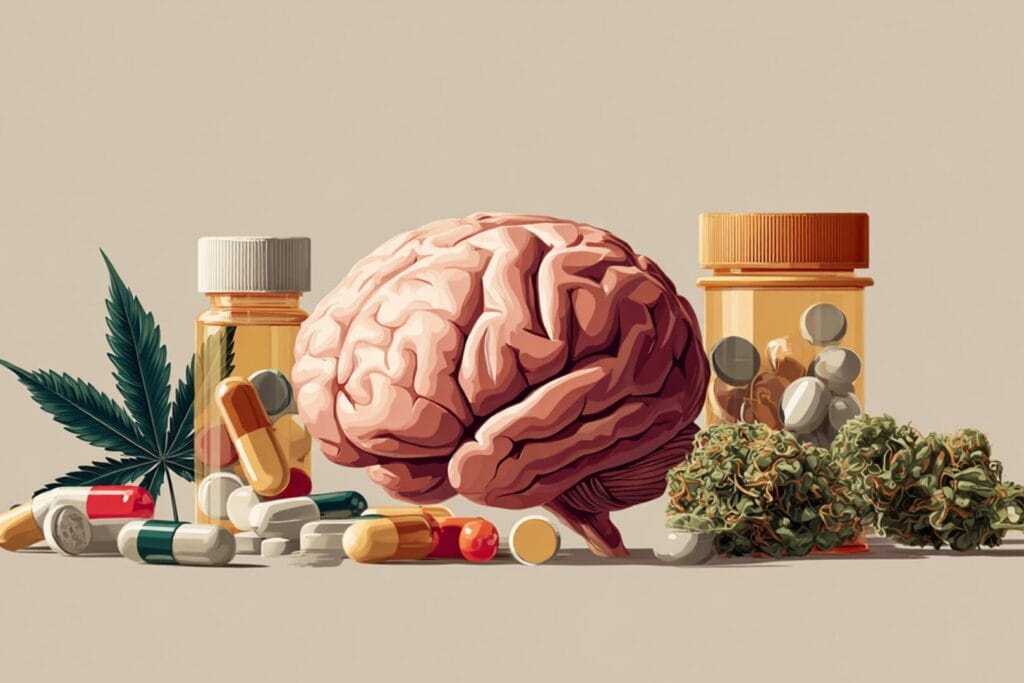Helping a friend with addiction is challenging and delicate, but it can be incredibly impactful for their recovery and well-being. Addiction can have devastating consequences in all areas of a person’s life, but there are things you can do to help the situation.
Understanding Addiction’s Effects
One of the most critical ways to help someone who’s dealing with addiction is to learn as much as you can about the disease and its effects. Addiction has a profound impact on the person struggling with it and their relationships with their family and friends.
Addiction leads to a range of physical and mental health issues, ranging from organ damage to mood disorders. There are often significant behavioral changes noticeable when someone’s dealing with addiction. Behavior could include being dishonest, secretive or defensive.
Someone who’s in the grips of addiction may prioritize their use of the substance over other activities, responsibilities, and even relationships.
Other effects of addiction to be aware of include:
- Emotional distress such as guilt and shame. The emotional turmoil experienced during addiction can lead to irritability and instability, which then deepens the effects on relationships.
- There’s an erosion of trust that can occur between the person with an addiction and their loved ones.
- Addiction disrupts communication patterns. The person with an addiction might withdraw emotionally or become defensive when they’re confronted about substance use. A lack of open or honest communication can hinder your ability to talk about the problem effectively with your friend and help them work toward recovery.
- Loved ones and friends of someone struggling with addiction may develop codependent behaviors and start prioritizing the needs of the addicted individual over their well-being. If there’s codependency, it can enable addiction to continue, preventing you from establishing healthy boundaries.
Addiction can take a toll on you as a friend, but some resources can help with navigating the situation and rebuilding relationships.
How Can You Help Your Friend Struggling with Addiction?
Steps to consider when helping a friend with addiction include:
- Educate yourself: Learn as much as possible about addiction, the science of the disease, its causes and symptoms. You can also explore available treatment options. When you understand the nature of addiction, you can approach the situation with insight and empathy rather than judgment.
- Encourage open communication: Become a safe and non-judgmental space for your friend so they feel comfortable talking about what they’re going through. Be an active and empathetic listener.
- Express concern: Approach your friend by expressing concern for their well-being and letting them know you support them.
- Offer practical help: You can do relatively simple but potentially life-changing things. For example, you can help your friend access treatment programs, therapy, or support groups. You could also go to appointments or meetings if they feel comfortable with you doing so.
- Set boundaries: Yes, you want to be supportive, but you must also create and maintain boundaries to protect yourself. When you have boundaries, they can help you maintain a healthy relationship with your friend while still offering support.
- Encourage professional help: It’s always a good idea to encourage your friend to seek professional support and assistance to obtain the necessary tools and resources for recovery.
- Practice self-care: Having a friend with an addiction is emotionally draining. Prioritize your well-being and set aside time for self-care.
Helping someone who’s dealing with addiction isn’t always linear, so try to be patient and understanding, continuing to offer support as your friend navigates the process.
What Not To Do If You Have a Friend with an Addiction
There are certain things to avoid doing when supporting a friend with addiction, to ensure you’re maintaining those healthy boundaries talked about above and providing constructive help.
Things to avoid include:
- Don’t enable the behavior: Enabling could include providing your friend with money or substances that would fuel their addiction. When you allow addictive behaviors, it’s going to continue the dependency cycle and hinder recovery.
- Don’t judge: Avoid criticizing your friend or being judgmental. Addiction is complicated, and it’s often accompanied by a lot of shame and guilt already. If your friend feels you’re coming to them in an overly critical way, it can hinder their willingness to listen and seek help.
- Don’t minimize the problem: Minimizing or ignoring an addiction doesn’t make it go away. If you avoid tough conversations about their behavior or substance use, the addiction may continue to go untreated. Avoid enabling your friend’s denial as well. Gently challenge excuses or rationalizations.
- Don’t try to fix the problem: You can offer support and encouragement, but it’s not your responsibility to resolve an addiction. Recovery is a delicate process and a personal journey. It almost always requires professional interventions, and your friend has to take ownership of this.
- Don’t put too much pressure on: You can encourage your friend to seek help, but don’t pressure them too much or give ultimatums. Your friend will need to be ready to commit to changing their terms.
- Don’t give up: Addiction recovery can be a long, challenging process with setbacks along the way.
If you feel overwhelmed or unsure how to help your friend best, get professional guidance from a support group, therapist, or counselor. This can give you some tools to navigate the situation more effectively.
Encouraging Your Friend to Get Help
If you have a friend dealing with addiction, your ultimate goal is to encourage them to get professional help. Provide information about the benefits of treatment and the different treatment options available. For example, you can give them information about rehab centers to help them make informed, empowered decisions and understand their options.
Highlight the positive changes from addiction treatment, such as better physical health and relationships.
This is also a great area to offer practical support. You can research treatment options, make appointments, or provide transportation to a treatment facility. When you can help remove logistical barriers, it is easier for your friend to take those earliest steps toward getting help.
By educating ourselves about addiction, offering support and empathy, and encouraging a friend to seek treatment, we can play a critical role in their recovery journey. Recovery is possible, and your unwavering support can make an enormous difference in your friend’s life.
If you’d like to learn more about available addiction treatment programs, we encourage you to contact us at San Diego Detox.
Frequently Asked Questions
Addiction — also known as Substance Use Disorder (SUD) — is a chronic brain disease that makes it difficult for a person to control their use of drugs or alcohol despite negative consequences.
You can support by offering empathy, listening without judgement, encouraging them to seek professional help, helping them explore treatment options, and establishing boundaries — but avoid giving money, drugs, or supporting substance use.
Effective treatment often includes medically supervised detox, behavioral therapies (like individual, group, or family therapy), and, when appropriate, Medication-Assisted Treatment (MAT) — which combines FDA-approved medications with therapy to help manage cravings and reduce relapse risk.
Common signs include neglecting responsibilities, withdrawing from social or family activities, mood changes, secrecy or defensiveness about substance use, prioritizing substance use over relationships, and abrupt changes in behavior or health.







